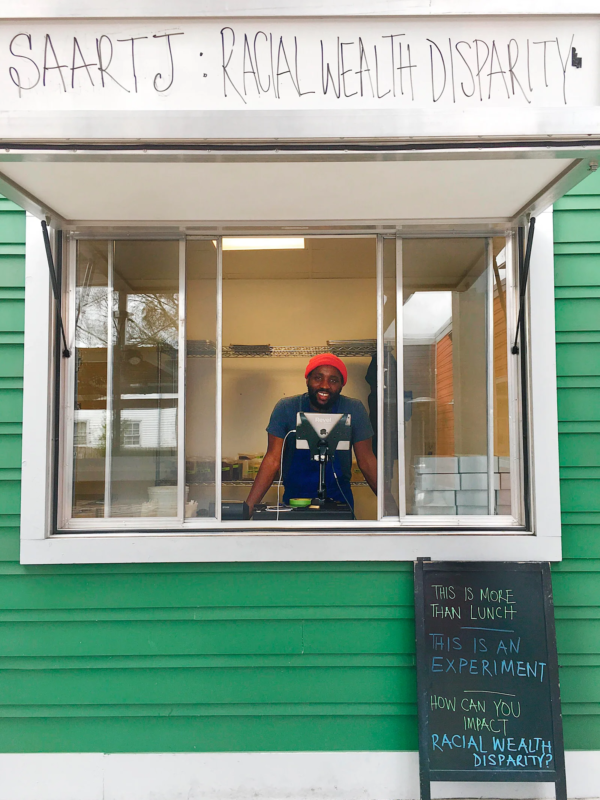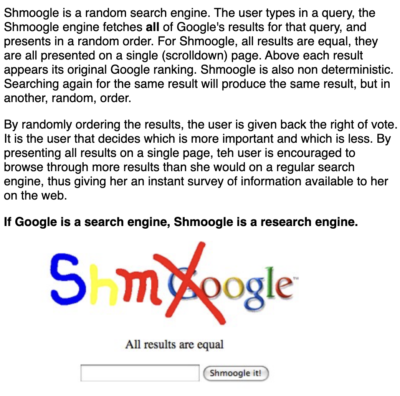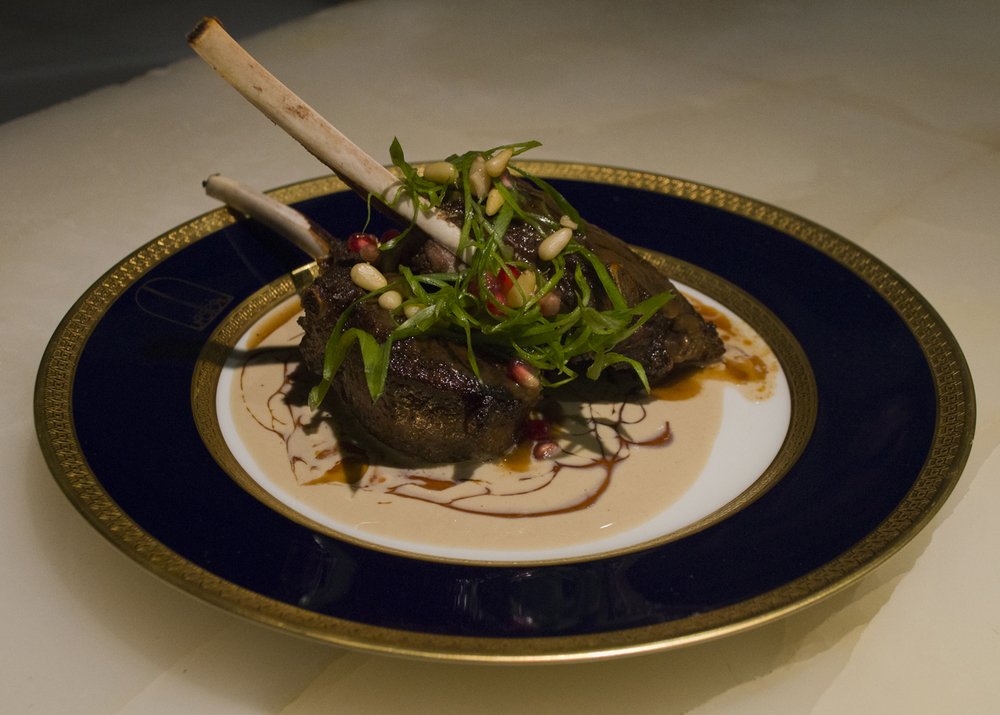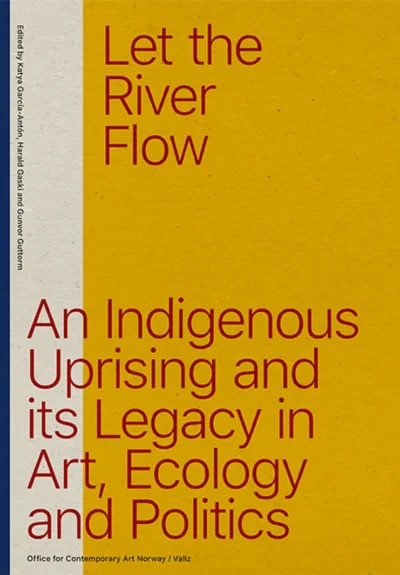Door: Tunde Wey.
“A helper moves in and out of an adjacent kitchen, quietly delivering Dixie Ultra paper plates of food. On them sits a southern meat-and-three by way of Africa: a version of efo riro, made with cooked-down collard greens; a pottage of mashed plantains; and finally, a Nigerian take on Nashville’s most famous culinary export—hot chicken. The name of this event is Hot Chicken Shit. The aforementioned “twist” is that while dinner is free for the black residents of the neighborhood, the prices for white visitors are listed on a pledge form at their seats: $100 for one piece of chicken; $1,000 for four pieces. For a whole bird, with sides, you must donate the deed to a property in North Nashville.
Eventually the man at the head of the table speaks: “My name is Tunde Wey. I am Nigerian. I am a cook. I am here trying to sell chicken for enormous amounts of money.” The plan, he goes on, is to thus end gentrification. There is laughter around the table. “I know,” he says, smiling. “But the problem is outrageous. I thought I’d come up with an equally outrageous plan to fix it.”
… Wey’s projects are the least forgiving and most direct. Food at his dinners is not metaphor; it is Trojan horse. There are times when it appears that food does not even particularly interest him. His hands—expressive, slender, and soft—are not chef’s hands. The act of cooking has become about as central to his work as throwing a football is to Colin Kaepernick’s. Indeed, if there’s a model for Wey’s short, incendiary career, it is Kaepernick, whose most radical transgression has been to blast away the notion that sports can be simply a realm of mindless escape. Wey wants to do the same for food.
To be sure, there’s also an element of self-flagellation, if not outright Radical Chic, in the spectacle of white liberal foodies lining up to be dressed down at what some reviews have proudly labeled “discomfort dinners.” It is a dynamic that Wey both counts on and is ambivalent about.
“White folks will consume me. They will consume my work and feel gratification for being abused or however they perceive it,” he says. “But the implication that I’m here to do a service, which is to make you uncomfortable… That’s such an egocentric response. It’s not about you! What I want is racial equity. The discomfort is just something that happens along the way.”
Aldus gq.com




